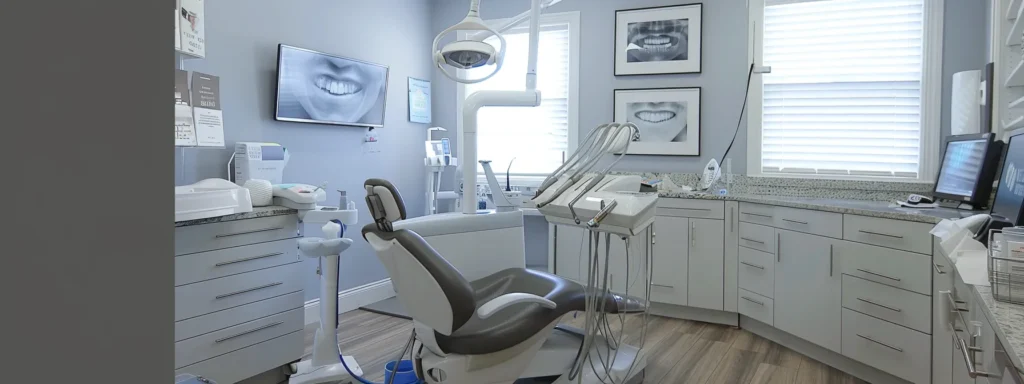The staff provided excellent care, were nice to talk to and made a very comfortable visit. They were able to provide fillings to several chipped teeth with short notice while visiting Phoenix from out of country. Both myself and my dentist back home agreed the quality of the fillings were well done, and the colour was a great match. Highly recommend for the great staff and professional work done.

Massage therapy offers a promising solution for those battling TMJ disorders by focusing on alleviating discomfort and enhancing jaw functionality. Targeted techniques on specific muscles can provide significant relief from pain and tension.
The masseter muscle plays a significant role in jaw movement and often develops tension in TMJ sufferers. Applying massage to this muscle provides direct relief from the tension and pain that commonly accompany TMJ disorders.
Muscle specific massage allows for precise treatment that addresses pain where you feel it most. Rather than using blanket approaches, targeting affected muscles ensures you experience more acute relief and genuine recovery progress.
Combining anatomical knowledge with massage techniques creates effective intervention strategies. Understanding how your jaw muscles work and their relationship with TMJ discomfort allows for targeted treatment of underlying issues.
How TMJ Massage Therapy Makes a Real Difference
For individuals enduring TMJ disorders, massage therapy emerges as a gentle yet powerful treatment option. This approach targets the root of pain with precision while avoiding invasive procedures.
The masseter muscle often bears the strain of TMJ disorders and becomes a critical focus for relief. Targeted massage techniques applied to this muscle offer immediate relief by reducing built up tension and easing persistent discomfort.
Muscle specific approaches to TMJ massage provide symptomatic relief while fostering deeper understanding of your unique pain patterns. Therapists can tailor treatments to directly address your most affected muscles for personalized relief.
Incorporating detailed muscle knowledge into TMJ therapy enhances effectiveness significantly. Therapists versed in jaw anatomy can perform massages that soothe immediately while working to prevent future discomfort episodes.
The Science Behind TMJ Massage Pain Relief
Effective TMJ pain management involves strategies that reach beyond surface symptoms by engaging your body’s natural healing mechanisms. Massage therapy activates neurophysiological responses that provide deeper, more prolonged pain relief.
Strategic pressure application during massage engages specific nerve fibers responsible for pain perception. These stimulated nerve fibers can inhibit pain signal passage to your brain, providing both temporary relief and natural defense activation.
Pressure level and technique selection become crucial for eliciting desired neurophysiological responses. Carefully administered massage enhances therapeutic effects by regulating stimulation intensity for lasting rather than fleeting relief.
Understanding massage as neuromodulation therapy for TMJ disorders proves paramount. This natural approach offers immediate comfort while establishing foundations for continued pain management through precise technique application.
Long Term Benefits for Your Jaw Structure
TMJ massage therapy extends beyond immediate pain relief to promote lasting improvements in jaw mechanics. Myofascial release techniques target deep seated structural issues that enhance overall jaw functionality.
Myofascial release breaks down restrictive scar tissue that commonly forms with chronic TMJ disorders. This scar tissue severely limits jaw movement, but systematic massage application softens these areas and restores natural motion.
Tissue elasticity restoration represents another critical benefit of TMJ massage. TMJ disorders can reduce myofascial tissue elasticity over time, contributing to pain and dysfunction cycles that massage therapy effectively counters.
Consistent TMJ massage mitigates harmful strain pattern development that exacerbates symptoms. Strategic myofascial tension release helps retrain muscles and connective tissues into healthier movement habits for long term management.
Maximizing Your Jaw Flexibility Through Massage
Improving jaw mobility forms a cornerstone of effective TMJ disorder treatment. Massage therapy integration provides holistic approaches that relieve pain while promoting essential motion for daily activities.
Targeted massage serves as foundational technique for increasing jaw muscle flexibility. Careful tissue manipulation allows gradual tightness release, promoting movement and reducing stiffness that accompanies TMJ disorders.
Comprehensive TMJ treatment approaches combine multiple therapeutic methods to address both immediate symptoms and long term jaw health improvement needs:
- Targeted massage techniques that focus on specific jaw muscles including the masseter and temporalis for direct tension relief
- Therapeutic exercise combinations that create synergistic effects when combined with massage for enhanced mobility results
- Myofascial release methods that break down scar tissue and restore natural tissue elasticity for improved function
- Neurophysiological pain management that engages nerve fibers to inhibit pain signals and activate natural healing responses
- Flexibility enhancement protocols that gradually restore natural jaw range of motion for daily activities like eating and speaking
These integrated approaches ensure comprehensive treatment that addresses both symptoms and underlying causes of TMJ dysfunction.
Self Massage Techniques for Home Relief
Self massage offers a viable strategy for TMJ disorder management, providing convenient pain relief methods from your home. This approach allows you to take active roles in your healing process.
Targeted self massage application directly addresses areas of pain and tension in your jaw muscles. When you perform self massage, you can focus on specific muscles contributing to TMJ symptoms for personalized therapeutic experiences.
Blood circulation enhancement to your jaw area through careful self massage brings essential nutrients and oxygen to affected muscles. Increased blood flow aids healing processes while reducing inflammation when you control pressure and techniques.
Incorporating self massage into TMJ treatment routines encourages consistent practice that’s key for sustainable improvements. Regular self care helps you navigate TMJ disorder challenges more effectively for stable recovery paths.

Recognizing When Professional Help Is Needed
While massage therapy can provide significant relief, you need to recognize signs that indicate professional medical evaluation becomes necessary. Self administered techniques have limitations that require expert intervention.
Persistent pain that resists self massage efforts signals deeper issues may be present. When TMJ discomfort becomes constant despite regular self treatment, specialized care evaluation becomes essential for proper diagnosis.
Professional TMJ evaluation becomes necessary when specific warning signs appear that indicate your condition may require comprehensive medical intervention:
- Chronic pain that persists despite consistent self massage and home care efforts over extended periods
- New or escalating symptoms that suggest TMJ disorder progression requiring more complex treatment approaches
- Jaw locking, clicking, or popping sounds that indicate potential joint problems beyond muscle tension issues
- Severe limitations in jaw opening or closing that interfere significantly with eating, speaking, or daily activities
- Associated symptoms like severe headaches, ear pain, or neck stiffness that suggest broader musculoskeletal involvement
These warning signs indicate when transitioning from self care to professional evaluation becomes crucial for comprehensive treatment planning.
Getting Support and Professional Guidance
Effective TMJ management requires integrating multiple treatment modalities to address both symptoms and underlying causes. While Tempe Dentistry doesn’t provide massage therapy directly, we can guide you toward qualified massage therapists and complementary treatments.
Our role involves curating resources that you can access for improved TMJ care. This includes educational materials that empower you with condition knowledge and therapeutic option understanding for better treatment engagement.
Expert guidance from our team personalizes your healing journey through custom tailored advice on therapeutic exercises, stress management techniques, and lifestyle considerations. We can coordinate your care with qualified massage therapists for comprehensive treatment.
Lifestyle modification incorporation into treatment plans acts as preventive measures against TMJ disorder exacerbation. Simple changes like posture correction and relaxation techniques integrate seamlessly into daily routines for joint health maintenance.
Preventing TMJ Problems Before They Worsen
Proactive prevention represents a paramount strategy for stalling TMJ disorder advancement. Engaging in specific preventive practices significantly reduces symptom exacerbation likelihood while maintaining better jaw health.
Posture improvement, particularly during activities that strain your neck and jaw, provides significant benefits. Good posture aligns your musculoskeletal system, minimizing undue temporomandibular joint stress throughout daily activities.
Stress management becomes another key element in preventing TMJ disorders from developing or worsening. Stress often leads to unconscious jaw clenching or teeth grinding that applies excess pressure to your TMJ.
Simple jaw exercises support strengthening and flexibility of jaw muscles, potentially easing TMJ burden. Just a few minutes daily of gentle stretching and strengthening can keep your jaw moving smoothly.
Sustaining Long Term Wellness
Massage therapy represents a significant element within TMJ treatment spectrums, contributing to immediate pain alleviation and long term jaw movement preservation. This gentle approach provides substantial outcomes for functionality and wellbeing.
TMJ massage therapy offers extended pain relief that works at deeper levels than temporary solutions. By relaxing muscles, improving circulation, and calming nerves, it reduces pain recurrence over time for lasting relief.
Regular massage treatment helps maintain necessary jaw flexibility and motion that TMJ disorders often compromise. This preservation of mobility becomes crucial for everyday activities like speaking and eating while enhancing quality of life.
As a non-invasive treatment option, massage therapy provides positive outlooks as preferred alternatives to aggressive treatments. The gentle approach minimizes risks while promoting natural healing processes for sustained jaw function improvements. While Tempe Dentistry doesn’t provide massage therapy services directly, we can help you find qualified massage therapists and coordinate your comprehensive TMJ treatment plan. Contact our Tempe AZ office today to schedule and discuss how massage therapy can fit into your personalized TMJ management strategy.
Frequently Asked Questions
Can massage therapy really help with TMJ disorder?
Yes, massage therapy targeting the jaw muscles, especially the masseter, can significantly reduce TMJ pain and improve jaw function by relieving muscle tension and enhancing blood flow to affected areas.
How often should I perform TMJ massage techniques for relief?
For best results, consistent practice is essential. Start with daily self massage and adjust frequency based on your discomfort level and healthcare professional advice for optimal benefit.
What if massage therapy alone doesn’t alleviate my TMJ symptoms?
If your TMJ pain persists despite regular massage, it’s time to consult a professional. We can provide comprehensive treatment plans that may include additional therapies and lifestyle modifications beyond massage alone.
Tempe Dentistry
480-897-2274
4427 S Rural Road, Suite 2
Tempe, AZ 85282
https://tempe.dental/
Related Articles
TMJ Treatment Options ~ TMJ Disorders Symptoms ~ Strategies for Managing Jaw Discomfort ~ TMJ and Sleep Disorders ~ TMJ Botox ~ When to See a TMJ Specialist



